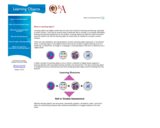
Helpful website with questions and answers on Learning Objects.
- Subject:
- Adult education
- Early childhood education
- Education
- Educational technology
- Material Type:
- Reading
- Date Added:
- 05/29/2009

Helpful website with questions and answers on Learning Objects.
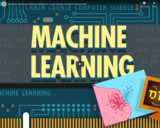
The video resource "Machine Learning & Artificial Intelligence: Crash Course Computer Science #34" is included in the "Computer Science" course from the resources series of "Crash Course". Crash Course is a educational video series from John and Hank Green.
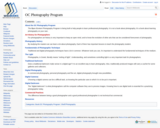
The Open Content Photography Program is being built to help people to learn professional photography. It is not a book about photography, it's a book about learning photography on your own.
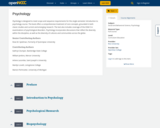
Psychology is designed to meet scope and sequence requirements for the single-semester introduction to psychology course. The book offers a comprehensive treatment of core concepts, grounded in both classic studies and current and emerging research. The text also includes coverage of the DSM-5 in examinations of psychological disorders. Psychology incorporates discussions that reflect the diversity within the discipline, as well as the diversity of cultures and communities across the globe.Senior Contributing AuthorsRose M. Spielman, Formerly of Quinnipiac UniversityContributing AuthorsKathryn Dumper, Bainbridge State CollegeWilliam Jenkins, Mercer UniversityArlene Lacombe, Saint Joseph's UniversityMarilyn Lovett, Livingstone CollegeMarion Perlmutter, University of Michigan

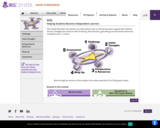
This Module describes how teachers can help students stay on task by learning to regulate their behavior. The four strategies discussed are self-monitoring, self-instruction, goal-setting, and self-reinforcement (est. completion time: 1.5 hours).
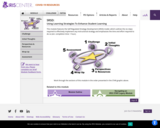
This Module features the Self-Regulated Strategy Development (SRSD) model, which outlines the six steps required to effectively implement any instructional strategy and emphasizes the time and effort required to do so (est. completion time: 1 hour).
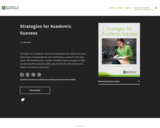
Strategies for Academic Success accompanies the online first-year University of Saskatchewan Arts and Science course by the same name. The textbook has a reader-friendly format arranged to help you develop the essential skills and provide the information you need to succeed in university.
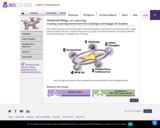
This Module examines the three principles of Universal Design for Learning (UDL) and discusses how to apply these principles to the four curricular components (i.e., goals, instructional materials, instructional methods, and assessments) (est. completion time: 2.5 hours).

This resources is an online video available in the "World Science Festival" open education series. The video "Robot Learning: Look at My Watch" is included in the Technology section of the series.

This resources is an online video available in the "World Science Festival" open education series. The video "Robot Learning: Rebuilding Newton" is included in the Technology section of the series.
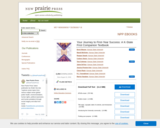
This textbook companion is a resource to help students successfully navigate through their first year at Kansas State University. It serves as part of the K-State First mission to create an outstanding university experience for every first-year student by helping with the transition to college-level learning and college life. The textbook helps improve chances for student success by focusing on fostering campus community, offering resources for diverse activities, highlighting academic expectations, and empowering students with personal responsibility and social agency. Instructors are encouraged to use the textbook in their K-State First classes, and it is also offered as a direct resource for students. In any university setting there are often unwritten rules that students are expected to understand, and this guide addresses and answers those questions directly. Ultimately, this guide encourages students to be engaged learners and to enjoy all facets of education, both inside and outside the classroom.